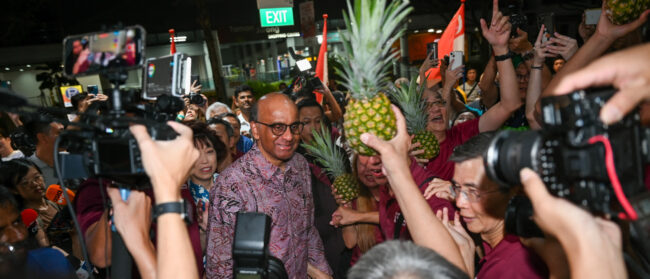Human rights group ASEAN Parliamentarians for Human Rights have released a report labelling Singapore’s upcoming elections as neither free nor fair, also claiming that holding them while the country is dealing with a pandemic will only exacerbate electoral inequalities.
The report, released 18 June and called In Singapore, An Already Unfair Vote Undermined By COVID-19, claimed that structural restrictions in the city-state deter viable electoral competition and give the ruling People’s Action Party (PAP) the political upper edge.
While no firm date for the elections have been set yet, PAP leaders have hinted they may call for a July ballot. The upcoming general election is mandated to be held by 14 April 2021, according to electoral rules, but the report noted that unnecessarily holding an election during the ongoing Covid-19 pandemic can further skew a contest that is already neither free nor fair.
“Concerns about the state of democracy across Southeast Asia are well-documented, but Singapore often seems to get a free pass, especially when it comes to scrutiny of its electoral system,” Teddy Baguilat Jr, a former Philippines MP and APHR executive director, told the Globe.
On 4 May, legislators adopted the Parliamentary Elections (COVID-19 Special Arrangements 2020) Act exempting voters who are under quarantine or exhibit respiratory symptoms from the electoral process. Among the measures adopted are special polling options to accommodate those under a COVID-19 stay-at-home order. Voters who are under such orders due to reasons other than the virus, whatever they might be, will not be penalised for non-voting but will not receive special poll accommodation.
Voting is otherwise compulsory in Singapore and non-voters can be fined $50 if they don’t have an accepted excuse. The measures and boundaries in relation to electoral campaigning are still being finalised, potentially further disadvantaging opposition parties. On 18 June, the Elections Department announced preliminary, Covid-19 conscious guidelines prohibiting in-person rallies.
The report also describes how electoral boundaries are drawn at the discretion of the Prime Minister Lee Hsien Loong – arguing that the ability to redraw electoral boundaries and call for an election at short notice is also not conducive for political opponents to rally and campaign.
The entire system is heavily weighted in favour of the PAP. There’s a reason they’ve won every election the country has held since it achieved self-governance in 1959
APHR also said elections in the city state are not free, citing high registration fees as a hurdle preventing opposition politicians from entering the political race. In the previous General Election in 2015, all candidates were required to pay a deposit of $14,500 (US$10,200). APHR also highlighted a trend of PAP members filing lawsuits against opposition candidates as a tactic to bankrupt and disqualify them from running, specifically naming the cases of Worker Party politicians Tang Liang Hong and J.B. Jeyaratnam, a former party leader.
The popular vote for PAP has never seen their vote share fall below 60% since the country’s independence in 1965.
The government has also used its grip on local media and internet to regulate alternative and dissenting criticisms leveraged against the PAP.
“The entire system is heavily weighted in favour of the PAP. There’s a reason they’ve won every election the country has held since it achieved self-governance in 1959,” Baguilat Jr said.
“It’s also concerning that this election looks set to take place during the COVID-19 pandemic. Singapore is still recording hundreds of daily cases, and has until next year to hold this vote. So, why rush it? Although some measures have been put in place to deal with the virus, they do not go far enough in ensuring that all of those eligible can vote.”


